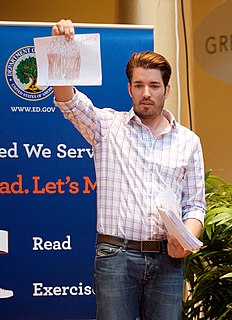A Quote by Jeff Greenfield
In the many-mansioned house of Alternate History, I occupy a small corner. The trio of what-ifs I chronicled in 'Then Everything Changed' all begin with tiny, highly plausible twists of fate that lead to hugely consequential shifts in history.
Related Quotes
Turned the wrong way around, the relentless unforeseen was what we schoolchildren studied in "History", harmless history, where everything unexpected in its own time is chronicled on the page as inevitable. The terror of the unforeseen is what the science of history hides, turning a disaster into an epic.
Wars make history seem deceptively simple. They provide clear turning points, easy distinctions.: before and after, winner and loser, right and wrong. True history, the past, is not like that. It isn't flat or linear. It has no outline. It is slippery, like liquid; infinite and unknowable, like space. And it is changeable: just when you think you see a pattern, perspective shifts, an alternate version is proffered, a long-forgotten memory resurfaces.
In his own lifetime Jesus made no impact on history. This is something that I cannot but regard as a special dispensation on God's part, and, I like to think, yet another example of the ironical humour which informs so many of His purposes. To me, it seems highly appropriate that the most important figure in all history should thus escape the notice of memoirists, diarists, commentators, all the tribe of chroniclers who even then existed

































